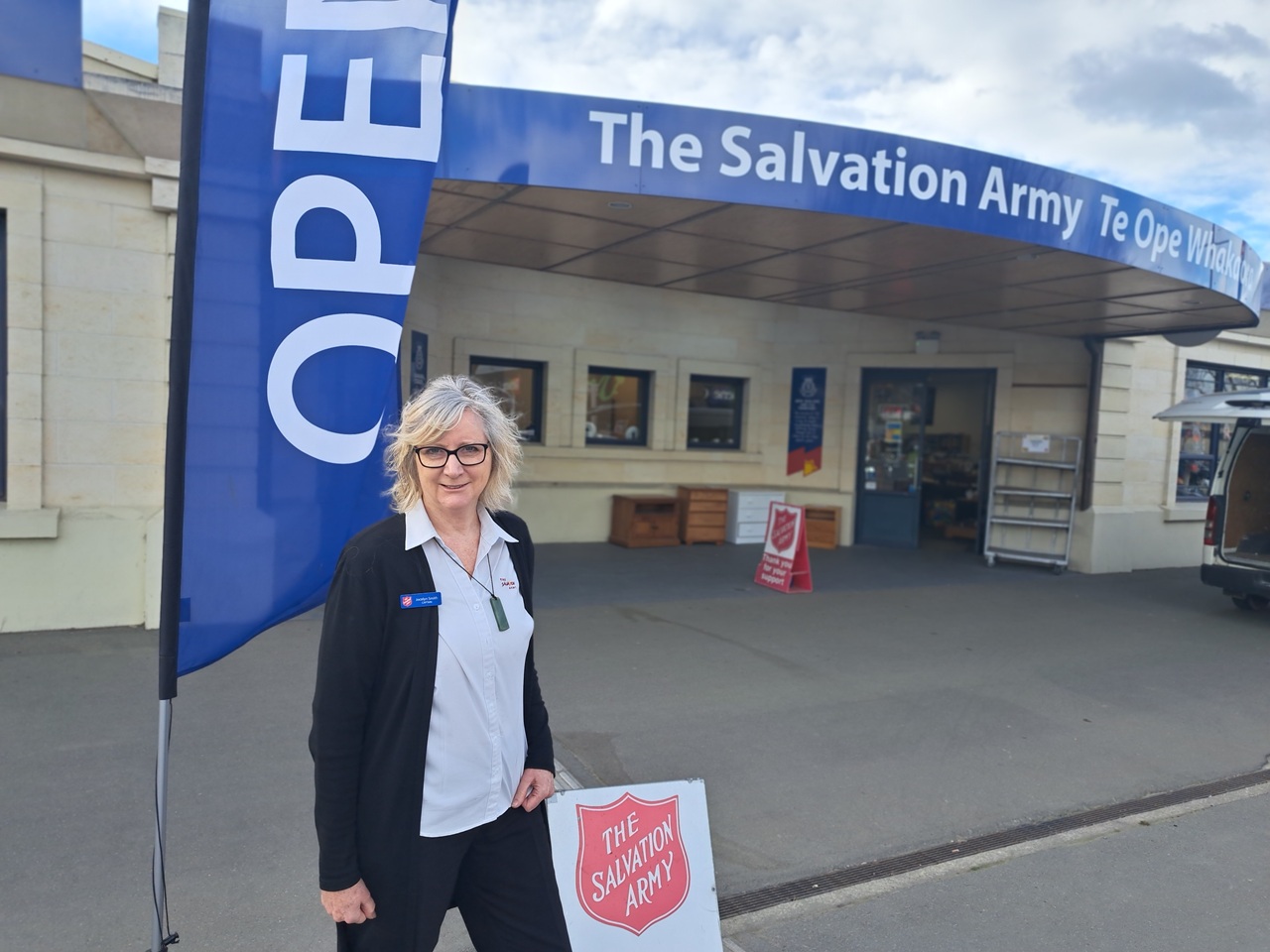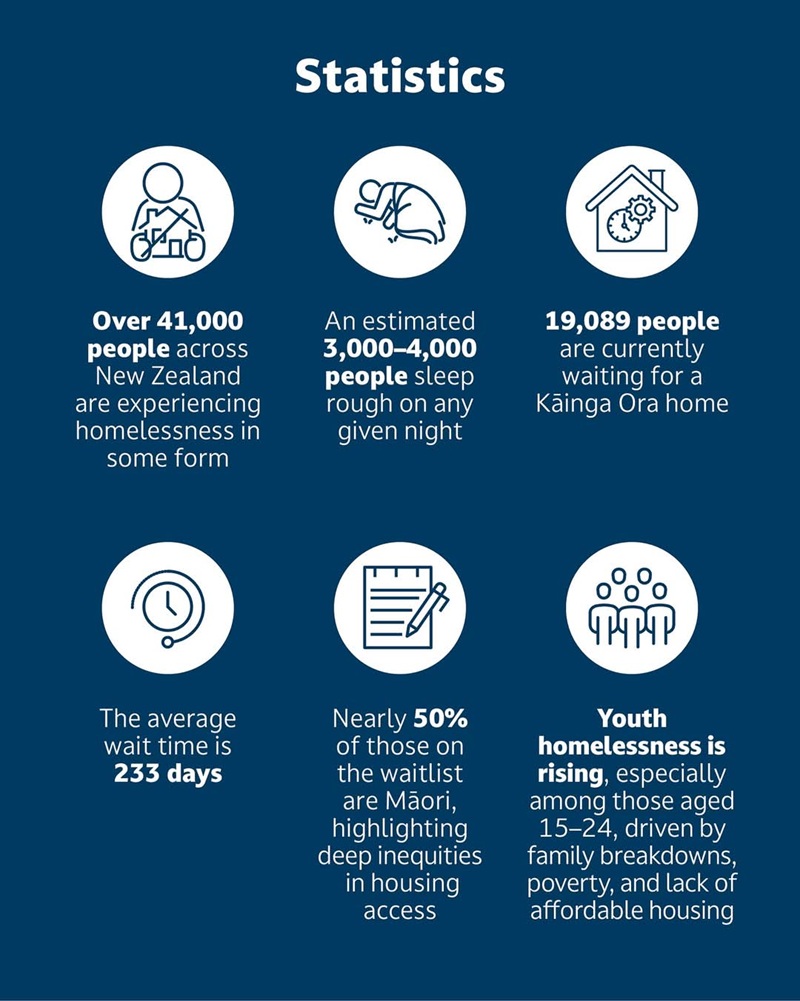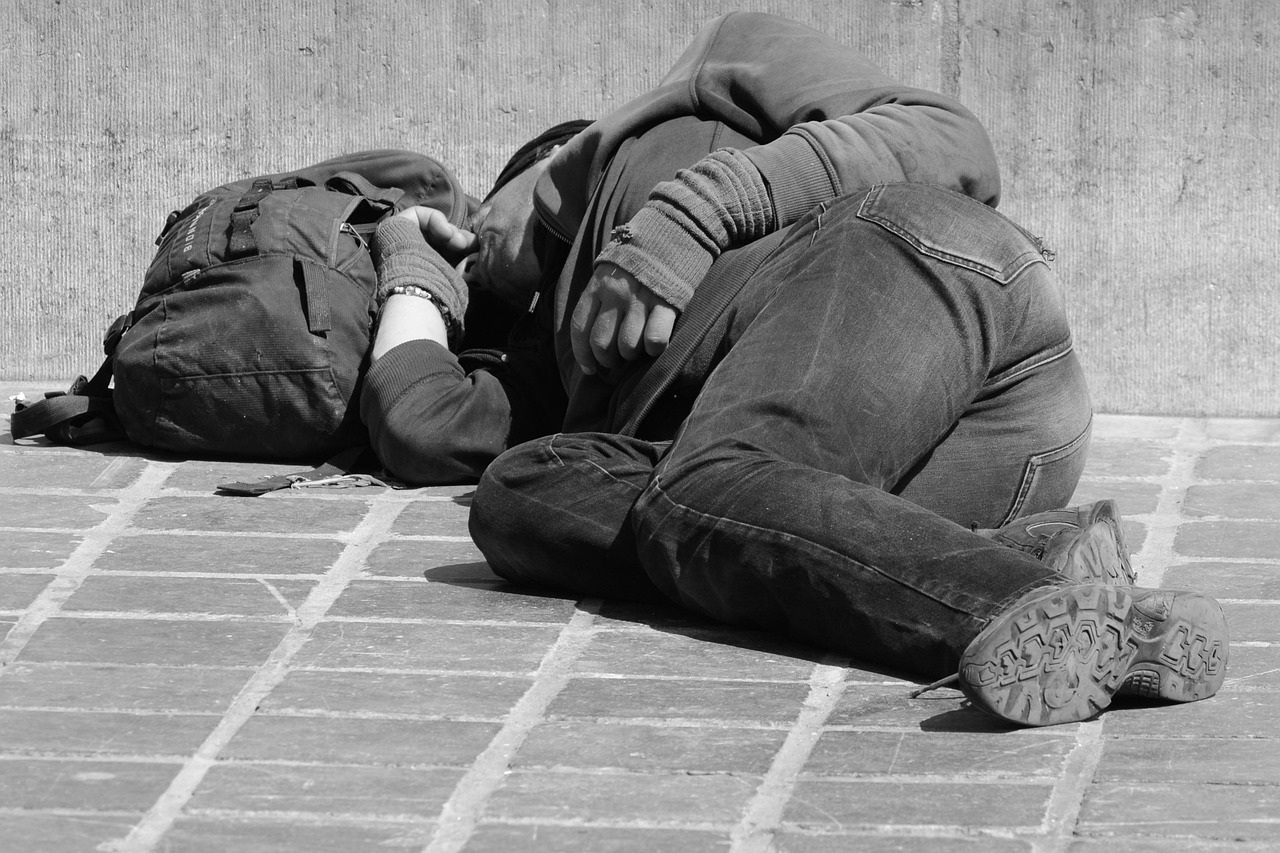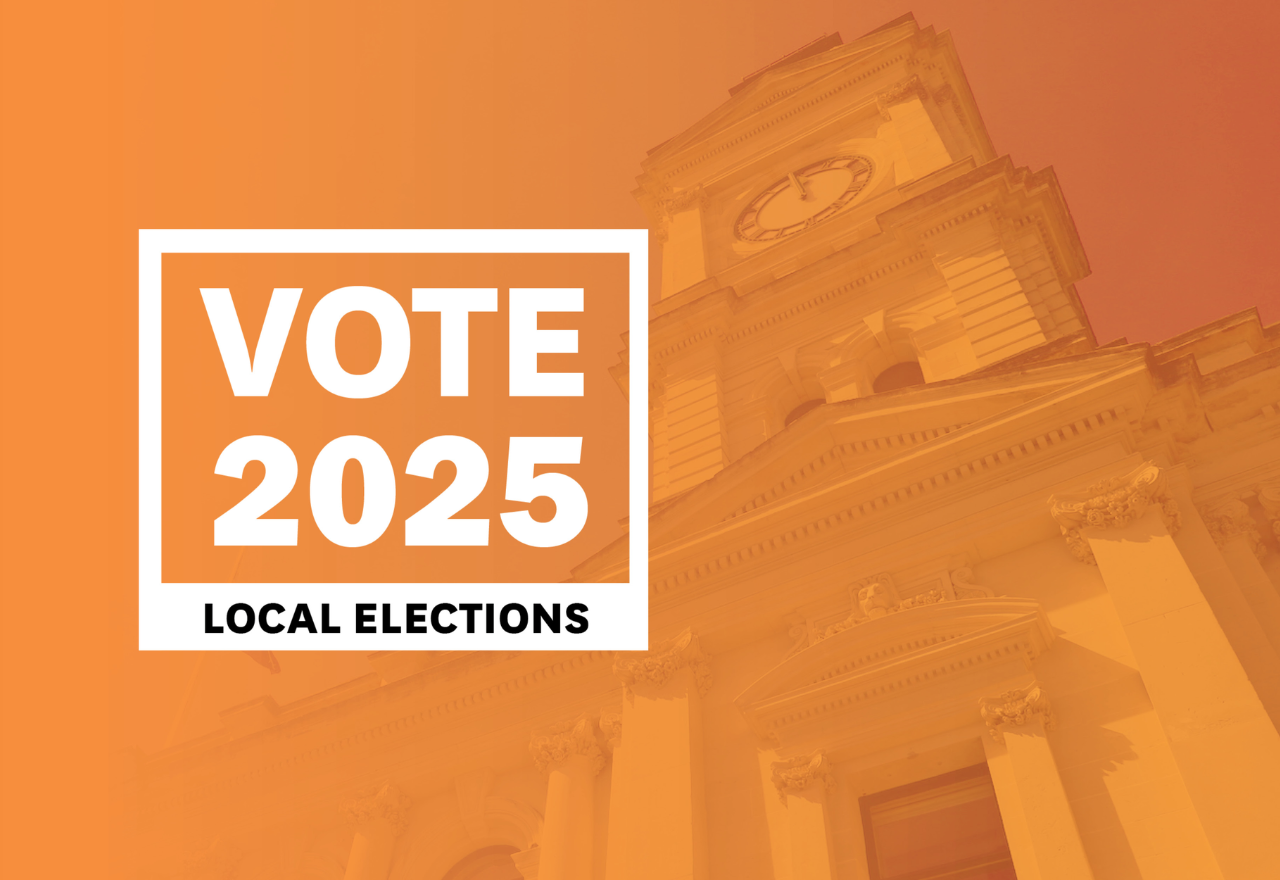Salvation Army comes face to face with complexity of homelessness
Ashley Smyth
27 August 2025, 9:55 PM
 Ōamaru Salvation Army Community Ministries manager Jocelyn Smith. Photo: Ashley Smyth
Ōamaru Salvation Army Community Ministries manager Jocelyn Smith. Photo: Ashley SmythIt is the “complexity of the people” dealing with homelessness, which makes the issue such a difficult fix, says Ōamaru Salvation Army Community Ministries manager Jocelyn Smith.
“The reason some people are homeless is potentially woven in with mental health, addiction or lack of medication. So it can make them vulnerable and volatile,” she says.
The number of people in the Waitaki without shelter (sleeping in cars and public spaces) has surged 320% in five years, from 15 in 2018 to 63, according to 2023 Census figures.
The same data showed the number of people in temporary accommodation (for example, on a friend’s couch, or Women’s Refuge) also classified as homeless, has risen by 60% in the five years since 2018, to 486 people.
The exact number for both is now likely to be higher, with the National-led coalition Government tightening restrictions around who is eligible for emergency housing, and with those who live a transient lifestyle being harder to reach with the Census.
The multifaceted nature of homelessness, means the mental state of some people results in them “burning bridges” with the groups trying to help them, Jocelyn says.
It has come to the point where, in an isolated incident recently, threatening behaviour put the Salvation Army into lockdown, forcing them to call in police and put trespass orders in place - extreme measures previously unheard of for the organisation in Ōamaru, Jocelyn says.
She is worried somebody is going to become seriously hurt, and a person could end up in jail.
“Which ironically means they will have three meals a day, someone looking after medication, the roof over their head, access to doctors, and mental health services,” Jocelyn says.
Despite these hurdles, the Salvation Army continues to offer crucial services.
They provide food, access to showers, blankets, and bedding.
“Sometimes we can do a voucher for the Warehouse or Kmart . . . to get some toiletries, whatever it is they don't have in . . . we can give, to sort of help get to that space.”

Graphic supplied by Salvation Army Social Policy Unit.
The "Kai Plans" offer extended food support to help individuals pay down other debts, such as car bills, preventing further financial strain.
Some of the situations people find themselves will not be fixed by one food parcel.
“But if they can pay down this debt or solve this piece of the problem, we can see this is a solution to that.”
The Salvation Army commits to providing an individual or family with food for a set number of weeks or months, and the money they save on the food, can be used to pay off the car bill or whatever this cost is.
“You know, you are driving in an illegal vehicle and you could get stung even more, and be in even more debt if you don't deal with that problem. And so by helping to solve that we’re taking away one cost so they can address another.”
While they collaborate with other agencies like the Ministry of Social Development (MSD), their limited resources, including only one part-time paid staff member for community ministries, often mean officers and volunteers are stretched thin.
If someone turns up at Salvation Army doors and says, “I've got nowhere to sleep tonight”, the first thing they are asked is if they’ve been to MSD, Jocelyn says.
“They can help with finance or, you know, pay for somewhere for them for the night.
“Often we will get someone turn up 10 minutes before you're about to close the door and go home.”
They are also “trying desperately” to get people to sign up for the Social Housing register.
“There is some social housing available out there. If not here, then in Dunedin or Christchurch or other places. And if these people are mobile and willing to move, there might be something we can do, but the first thing is that they have to be on the social housing register.”
But even that’s not as straightforward as it was, Jocelyn says.
“My understanding is that it has got to the point where unless you are literally unhoused tonight . . . you do not qualify to apply for the social housing.
“You have to be homeless before you can even start the process, which is just ridiculous to me.
“You know, if you're staying with your aunty or you've got a mate that's given you a couch, you've got a roof over your head, you are fine, you don't count.”
If Jocelyn could present a wishlist to the Government, on it would be that they address the urgent need for more housing.
She wishes they would engage with frontline workers and acknowledge the true scale and complexity of homelessness.
She also believes the Healthy Homes regulations, while well-intentioned, have inadvertently led some landlords to keep properties empty rather than incur the costs of upgrades, further reducing available affordable housing.
Jocelyn also encourages landlords who can afford to offer their rentals at a cheaper rate to do so, rather than always aiming for top dollar.
“It's just heartbreaking because when people are paying 60-70% of their income in rent, they can't afford to live . . . it's just a vicious circle. We just need to grow a conscious community and actually care.”
NEWS
SPRING LOADED
WHAT'S ON GUIDE







